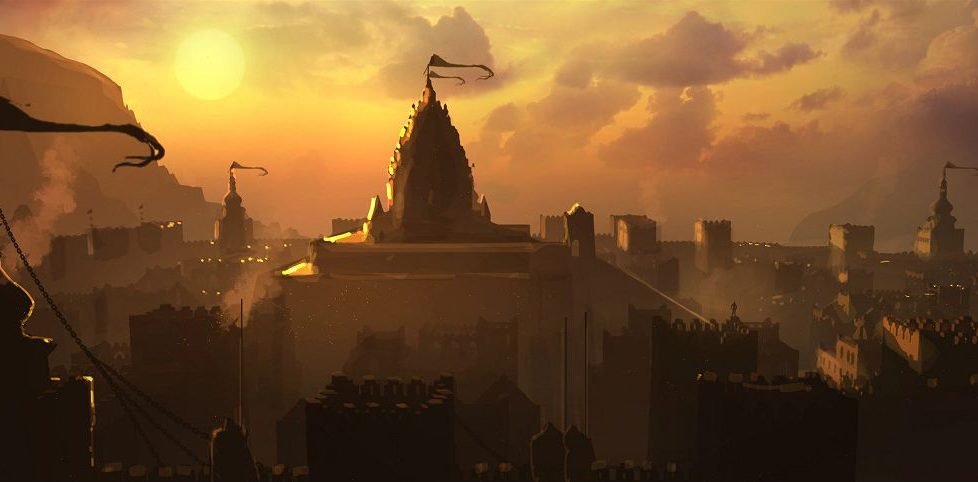Whither My Civilization?


My reading, confessedly poor, so far leads me to regard Edward Gibbon (08 May 1737 – 16 January 1794) as the historian most gifted in the art of writing. I have been spending the past several days reading his six-volume History of the Decline and Fall of the Roman Empire. This agreeable voyage I expect to last several weeks, but my progress so far has sufficiently acquainted me with a trait, the importance of which cannot be understated.
Gibbon treats of every instance of loss, with regard to a cultured city or a noble king, with a sombre poignancy, such that his writing evokes the appropriate sentiment. No historian might today attain to a fraction of Gibbon’s solemn eloquence, but the reverence for civilization persists in the West, and however mercurially the bursts of counterculture may contest, they can never altogether halt, the activities that, from a generation to the next, transmit the treasure of civilization.
To this reverence Indians form a sad and vexing contrast, for except on social media, with a poverty of perspective, and with petulant words, they seem not to regard the loss of great temples and cities as a sombre loss of civilization, and descent into rustic misery. Or, if indeed any writer ventures to do so, they may avidly consume his research, and yet not comprehend its gravity. I sense that those in India who speak of a civilization do so, for the most part, only to affect the airs of a scholar. They speak perfunctorily of civilizational continuity, but their love is reserved for the institutionalization of competitive victimhood politics that is the Republic of India.
Will Durant, another elegant historian and also a philosopher, writes of civilization as follows:
Civilization is not something inborn or imperishable; it must be acquired anew by every generation, and any serious interruption in its financing or its transmission may bring it to an end. Man differs from the beast only by education, which may be defined as the technique of transmitting civilization.
And
Civilization is an accumulation, a treasure-house of arts and wisdom, manners and morals, from which the individual, in his development, draws nourishment for his mental life; without that periodical reacquisition of the racial heritage by each generation, civilization would die a sudden death. It owes its life to education.
Such generational transmission of civilization cannot but rest as a great responsibility on the historian. The rudiments of manners may be transmitted in the average home, but the panoramic illustration of lessons taught by the great wars between the constituents of civilization and the elements of barbarism must necessarily be the task of the historian. Those in the enlightened order of Indian society whom Arun Shourie arraigns with the title ‘Eminent Historians’, seem to have cursed Indian historiography with the twin evils of insipidity of writing, and a cavalier indifference to the loss of civilization, such as the loss of temples and cities occasions.
The nation-state that is India does not aim to concretize what it means to inherit a civilization: a rudimentary understanding of how Indians have traditionally conceived of manners, epistemologies, philosophies, and what constitutes high culture. Education in India, excepting science, mathematics, and possibly English, is limited to extolling ‘democracy’ with all the eloquence of a high-schooler, justifying the ostentation of the judiciary (‘guardian of the Constitution’ and kindred balderdash), justifying ‘social justice’ politics, weaving yarns of doubtful past and present harmony, and regurgitating lofty words (‘secularism’, for instance).
Perhaps the infestation even of cities with village-level victimhood politics does not allow Indians to so much as perceive a civilization, much less appreciate it. Such politics militates against every circumstance of civilization, and by reason of it, we stand in peril of vindicating colonial British views of India — a macédoine of warring castes and tribes — and the derision that attended them.
The manner in which popular passions conceive of history will disillusion the most fervent optimist. To the warring of castes and tribes we have added the war of ideologies, and these have seized the domain of history. No longer do we appreciate the rich tale of our civilization and its journey through time; history is now an exercise in heaping calumnies on one historical figure or another, based on the fanatically diseased devotion to one’s ideology. Such pettiness cannot but be the mark of a people unfit for civilization. The treatment of Vinayak Damodar Savarkar will suffice as an instance. In any other country, Savarkar’s act of writing grovelling petitions to get out of prison and live a productive life would be applauded. In the uncivilized Republic of India, it is deemed evidence of his treasonous heart, notwithstanding that the colonial British, who were certainly more well-situated to assess Savarkar, never trusted his saccharine eloquence.
Ingratitude to the past, such as the calumniation of Savarkar evinces, betrays the haughty ambition of a complete sundering from the past, and starting a new entity. But starting civilization anew is the privilege, or rather the burden, of only those who have witnessed wholesale perdition, much as Manu is said to have prescribed a code of civilization after the great deluge.
In conclusion, in what manner might such people be described, except with the unflattering word: ‘uncivilized’?
DISCLAIMER: The author is solely responsible for the views expressed in this article. The author carries the responsibility for citing and/or licensing of images utilized within the text.
